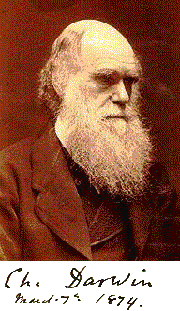 |
Evolution Links to our Past News of the Present Insight for the Future |

© Linnean Society of London |
|
|
Abiogenesis—Origins of Life Research

The period of abiogenesis is here represented by the words "First Life ?" It is not part of evolution.
|
|
|
|
|
The Origin of Cellular Life : Sidney W. Fox, a man some colleagues
say should have won the Nobel Prize, showed how living cells can be formed from inanimate material.
|
|
|
|
"Talk.Origins: Deception by Omission" The essay can be read here One of the problems that Christian fundamentalists (specifically Biblical literalists) have in dealing with biologists who say "Evolutionary biology and abiogenesis are two different topics" is that they have no answer. If they accept that definition, then they lose one of their prime arguments: that "evolution" can't account for the origin of life from non-living matter. If they lose that connection, they have a much harder time denying evolution, since the evidence for it is overwhelming, and most creationists have been forced, by the pure weight of the evidence, to accept that evolution occurs - on a "micro" level, another distinction creationists make so that they can continue to deny at least a part of evolutionary theory. So when a creationist says: "What's more, if we are to remain exclusively within the natural (material) realm then the term 'evolution' must somehow be further extended to include life from non-life, i.e., the emergence of life itself must also be accounted for by the ever-stretching definition of evolution." ( http://www.trueorigin.org/to_deception.asp) This is such abysmal logic it is hard to even reply in any manner of seriousness. The actual statement Fernandez is making is: "If we creationists have any chance at fighting evolutionary theory, we must include the origin of life in it, so that we can point to at least something and claim that evolution can't explain it". The definition of evolution is being stretched to include the origin of life only by the creationists. Change in gene frequency through time is the genetic basis for any definition. However, as apologists such as Fernandez are well aware, genetics makes its outward expression as the phenotype - the physical entity that embodies those genes. Natural selection acts upon the phenotype, not upon the genotype, and changes in gene frequency are manifest, and measurable, as changes in morphology. Genetic changes in living creatures can also be measured directly by specifying the genotype, but for fossils, morphology is what we have, and it is more than adequate. So the definition hasn't been stretched, at least not by biologists. No theory of biological evolution has every tried to account for the existence of everything. It simply explains the diversity of life we see on earth today. But why would creationists insist upon stretching the definition of biological evolution to include any 'change" - the origin of life, the origin of the earth, of the universe, of matter and energy? Because, other than in an extreme reductionist sort of way, there isn't, and most likely can't be, a single theory which explains "everything". Except for God. Thus, by stretching the definition of evolution to cover "everything in the known and unknowable universe", creationists position them selves to be able to say that science is inadequate, and that God is the only explanation capable of encompassing everything! The problem is that, at that point, the explanation is no longer scientific. It is untestable, it is faith, it is religion. The materialistic approach of science (which creationists can't distinguish from Philosophical Naturalism) works perfectly well in explaining the diversity of life we see on earth via evolution and natural selection. One might well ask, then, why Talk Origins spends so much time talking about abiogenesis, physics, astrophysics and cosmology. The answer is simple. Creationists are the ones who constantly try to drag those topics into discussions concerning biological evolution. Talk Origins has therefor very carefully defined each (as used by the very practioners of those subjects), shown that they do not relate to biological evolution, and thus deprived the creationists of their intentional obfuscations. Fernandez's entire essay is a cry in the wilderness to regain that obfuscation. Without it, Creationists have almost no argument they can make. Note also how the essay takes a bit of time to denigrate those of faith who do accept evolution as the best explanation - a thinly veiled "No True Christian" logical fallacy. Richard S. White Originally appeared on Fundies Vs. Atheists, June 14th, 2026 - scroll back to message #14. |
Books | Botany | Cell Biology | Chemistry | Creationism | Current News | Darwiniana
Dict. / Encyclo. | Ecology | Education | Essays | Eugenics | Evolution | Fossil Record
Genetics | Geology | Gouldiana | Health | Homework | Human Origins | Intermediates
Math | Museums | Origin of Life | Paleontology | Photos | Physics | Reference Aids
Science Journals | Sociobiology | Taxonomy | Transitionals | The Universe | Zoology
abiogenesis.htm Last Updated April 22, 2026 Links verified April 22, 2026

